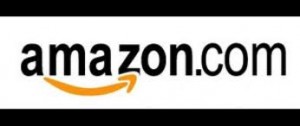 Amazon just listed their editors picks for the 2014 Best Books of the Year. This is the overall list for the Adult titles. The Amazon editors did a very good job selecting the right mix of literary and popular – with a few execptions. It is a list that for the most part reflects the publishing industry, except it is corporate publisher dominated.
Amazon just listed their editors picks for the 2014 Best Books of the Year. This is the overall list for the Adult titles. The Amazon editors did a very good job selecting the right mix of literary and popular – with a few execptions. It is a list that for the most part reflects the publishing industry, except it is corporate publisher dominated.
Of the 100 books listed, 41 are from Penguin Random House and another three are from publishers distributed by PRH. So, 44% of the entire list of the “Best” books of the year are from one corporation. The list encompasses over a dozen imprints within the Big House. Although the imprints are independent of one another, they are still part of one massive publishing entity. As long as Penguin Random House has this cache of rich content, they can negotiate on equal or stronger status with Amazon.
- HarperCollins has 12 titles.
- Simon & Schuster has nine titles.
- Macmillan has nine titles.
- Hachette has only four titles.
The corporate five have almost 80% of the entire list. Penguin Random House has as many titles as the next four corporate publishers combined. Harper, S&S and Macmillan are bolstered by their literary imprints Ecco, Scribner and FSG. Has the Hachette feud influenced the list? Who knows? But only four titles does seem small compared to the size of the publisher.
A few other things of interest:
Grove-Atlantic has seven titles and combined with Basic and Nation each having one, gives Perseus nine titles. The same as S&S and Macmillan. Add Perseus Distribution (adding in PGW) to the list of the “Big 5” and almost 90% of the titles come from six corporations.
Amazon Publishing has two titles as does HMH, Norton and Bloomsbury.
A handful of publishers have a single title.
I didn’t review the Children’s list yet but a quick scan on the YA titles and Penguin Random House has five of the top seven. Penguin’s children’s books are especially strong on the list (and also on the latest NYTimes YA fiction list with six of the top eight books).
The Amazon-Hachette issue has been written about ad nauseum. I have no desire to add that debate. But I don’t fear Amazon “ruining” the culture for their list is thoughtful although it does protect the status quo.
As long as Penguin Random House has so much top-notch content, Amazon will not be in complete control.
